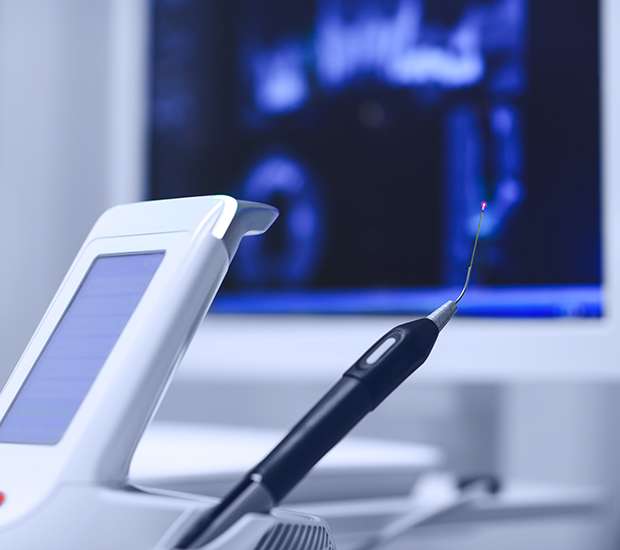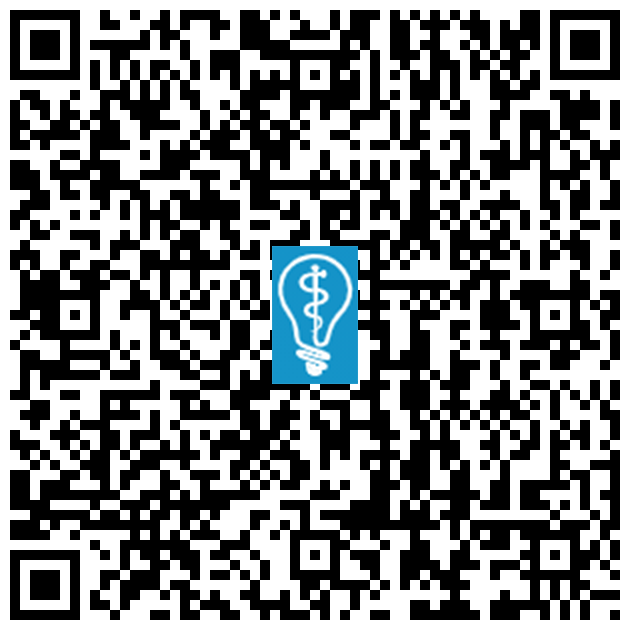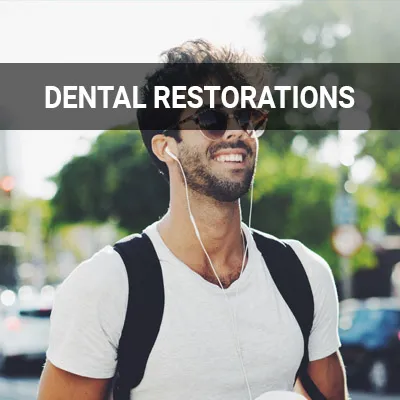Laser Dentistry Skokie, IL
Laser dentistry is an innovative way to treat a range of dental conditions. Laser-based treatment is an emerging technology in dentistry, and it has many unique advantages compared to traditional modes of treatment. Dentists use lasers in many different ways, and they can replace dental tools that tend to provoke high anxiety.
Laser dentistry is available at Leading Edge Dental Center in Skokie and the surrounding area. Our team can provide you with the safe and quality dental treatment you deserve. Call us today at (847) 796-8731 to learn more about our services or schedule an appointment.
What is Laser Dentistry?
In laser dentistry, a dentist diagnoses or treats a dental concern using a laser, which is a tool that emits light. Lasers can cut both hard and soft tissues in the mouth, and they allow for high precision. They also can reduce pain and the likelihood of an infection.
Patients who may be eligible to receive a laser dental treatment include those who require the following:
- A biopsy
- Cavity removal and preparation
- Gum surgery
- Surgery on other tissues of the mouth
Additionally, people with high sensitivity in their teeth or dental anxiety can benefit from receiving laser dentistry. Lasers take up less space than a traditional dental tool, which is more comfortable for patients with small or narrow mouths (especially young patients). There are two categories of laser dentistry: soft tissue laser dentistry and hard tissue laser dentistry.
“Lasers can cut both hard and soft tissues in the mouth, and they allow for high precision.”
Soft Tissue Laser Dentistry
A soft tissue laser can help manipulate tissues in the oral cavity that are less dense than teeth. These tissues include the gums and other soft tissues. A soft tissue laser cauterizes as it works, which means that patients tend to experience less bleeding during a procedure. Other benefits of soft tissue lasers are that they can reduce the chance of infection, are highly precise, and reduce procedural swelling and pain.
Specific procedures that may incorporate a soft tissue laser include gum contouring or reshaping, frenectomy (removing the frenulum), crown lengthening, biopsies, exposure of partially erupted teeth, and periodontal disease treatment. Lasers can also help seal wounds and reduce bacteria within the mouth.
“Specific procedures that may incorporate a soft tissue laser include gum contouring or reshaping, frenectomy (removing the frenulum), crown lengthening, biopsies, exposure of partially erupted teeth, and periodontal disease treatment.”
Hard Tissue Laser Dentistry
A hard tissue laser can manipulate the hard structures of the mouth, namely the teeth. Similar to soft tissue lasers, hard tissue lasers offer high precision, minimal pain, and fast recovery time. Thus, they are ideal for patients who experience dental anxiety from the sounds and sensations created by traditional dental instruments.
Compared to a soft tissue laser, a hard tissue laser can cut through more dense materials, making it well-suited for procedures involving teeth and bones. The National Journal of Maxillofacial Surgery notes that hard tissue lasers can be used for preventing cavities, bleaching teeth, preparing cavities, and eliminating tooth hypersensitivity, among many other procedures.
“Compared to a soft tissue laser, a hard tissue laser can cut through more dense materials, making it well-suited for procedures involving teeth and bones.”
Check out what others are saying about our dental services on Yelp: Laser Dentistry in Skokie, IL
Advantages and Disadvantages of Laser Dentistry
When considering whether to receive laser dentistry, patients should consider the advantages and disadvantages of this treatment. A major advantage of laser dentistry is that it can be less invasive and damaging to the oral tissues. Lasers can decrease the need for stitches and anesthesia. Wounds in the mouth can heal faster since lasers can help with blood clotting and sterilization.
While laser dentistry is a good option for many people, it is not for everyone. For example, teeth with certain types of fillings like metal amalgam may not be able to receive laser treatment. Pre-existing surrounding tissue or components involving the tooth or gums can also prevent people from receiving laser dentistry. Additionally, some laser procedures will still require the use of anesthesia and other drilling tools. Our team can determine whether laser dentistry is right for a patient's needs.
“A major advantage of laser dentistry is that it can be less invasive and damaging to the oral tissues.”
Questions Answered on This Page
Q. Why would a person need laser dentistry?
Q. What is soft tissue laser dentistry?
Q. What is hard tissue laser dentistry?
Q. What are the advantages and disadvantages of laser dentistry?
People Also Ask
Q. What are the benefits of getting a gum contouring procedure?
Q. How can I treat gum disease?
Q. What are the pros and cons of soft-tissue laser dentistry?
Frequently Asked Questions
Q. How new is laser technology in the field of dentistry?
A. While lasers have been used in medicine since the 1970s, the American Academy of Pediatric Dentistry (AAPD) notes that the first dental-specific laser was created in 1987 and approved by the U.S. Food and Drug Administration in the 1980s. Since then, lasers have become increasingly used by dentists because of their unique benefits.
Q. What exactly happens during a laser dentistry treatment?
A. First, your dentist will describe to you what the procedure will entail. You will likely be instructed to wear sunglasses during the treatment. Unlike other dental tools, lasers do not emit a loud noise or create a grinding sensation, so the treatment may be surprisingly quiet. After the treatment, your dentist will provide you with after-care instructions.
Q. Can laser dentistry be used in children?
A. Yes. Lasers are especially useful in children because they are minimally invasive, operate within a narrow field, and are also antimicrobial. Lasers can also reduce a pediatric patient's need for stitches or anesthesia, says the American Academy of Pediatric Dentistry (AAPD).
Q. What kind of training is needed to perform laser dentistry?
A. Dentists and other providers who use lasers are required to have specialized training. During this training, they learn how to use lasers strategically to manage dental conditions and make sure that lasers are used safely. The Academy of Laser Dentistry is devoted to ensuring that the practice is standardized.
Q. Are lasers approved dental devices?
A. Yes. The FDA has approved dental lasers to perform a number of different procedures, such as frenectomies, teeth whitening, lesion removal, and gum tissue removal, among many others. However, the American Dental Association (ADA) has not officially provided any specific laser with its Seal of Acceptance, which is why you may be confused about whether they are sanctioned. However, the ADA is cautiously optimistic about the future of lasers in dentistry.
Start Feeling Better – Visit Us Today
By visiting us as soon as possible, our team can help get you the professional treatment you need. Instead of waiting around and allowing the symptoms to get worse, we can provide you with treatment options.
Definitions
Call Us Today
Laser dentistry is a safe and effective way to receive the dental care you need. Our team at Leading Edge Dental Center can help. If you are interested in receiving laser dentistry, contact our team today at 847-796-8731 to find out which options may be right for you.
Helpful Related Links
- American Dental Association (ADA). Glossary of Dental Terms. Year
- American Academy of Cosmetic Dentistry® (AACD). Home Page. 2023
- WebMD. WebMD’s Oral Care Guide. 2023
About our business, license, and website security
- Leading Edge Dental Center was established in 1986.
- We accept the following payment methods: American Express, Cash, Check, Discover, MasterCard, and Visa
- We serve patients from the following counties: Cook County, Niles Township, and New Trier Township
- We serve patients from the following cities: Skokie, Lincolnwood, Morton Grove, Evanston, Niles, Wilmette, Park Ridge, Glenview, Golf, Northbrook, West Rogers Park, Peterson Park, Forest Glen, Jefferson Park, Pulaski Park, and Sauganash
- IL. View License Information and Specifics
- National Provider Identifier Database (1659554210). View NPI Registry Information
- Healthgrades. View Background Information and Reviews
- Norton Safe Web. View Details
- Trend Micro Site Safety Center. View Details
Back to top of Laser Dentistry










